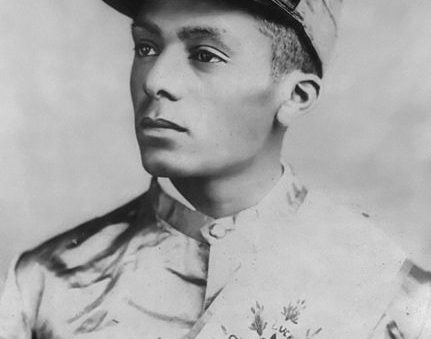The outrages Henrietta Butler suffered as a slave _ forced to have a White man’s baby, then forced to nurse her mistress’s baby when her own infant died _ lasted to the very end.
“My damn ol’ Missus was mean as hell,” Butler said in 1940. “You see this finger here? There is where she bit it the day us was set free. Never will forget how she said, `Come here, you little black bitch, you!’ and grabbed my finger _ almost bit it off.”
Ceceil George was born on Great Swamp Plantation, in Charleston County, South Carolina, which she remembered as beautiful and referred to it as “the old country.” The plantation raised cotton, rice and corn, and she said its older owners were not cruel. But, when the patriarch died, everything changed.
“Some of us had to go. They sold us like a gang of chickens,” George said. “I remember well, we all cried to leave the old country, but we had more tears than that to shed.”
They were sold to a plantation in St. Bernard Parish, where slaves were whipped as punishment.
“Down here, they strip you down naked, and two men hold you down and whip you till the blood come,” George said. “Cruel. Oh, Lord.”
Now the stories of Butler and George and that of 48 others can continue to be heard.
The John B. Cade Library at Southern University recently expanded its online archive of slave stories, accounts told by former slaves who were interviewed in the late 1930s and early 1940s.
The stories further a collection that had been compiled by the library’s namesake, who began collecting them even before serving as a dean at Southern from 1939-61.
Cade sent students to gather these personal accounts while the former slaves were still alive. The library digitized and posted more than 200 such narratives in 2014.
The additional stories, all testimonies of former slaves living in Louisiana, are part of a separate project by the Works Progress Administration, which operated during the Great Depression.
Angela V. Proctor, the university’s head archivist and digital librarian, and two staff members have made the typewritten original stories accessible for researchers and the public.
The timing is accidental but appropriate, Proctor said.
“These are important,” she said. “The days that we are living in now, the social unrest . is where we are.”
The WPA narratives come mostly from people in New Orleans, Gretna and Alexandria as part of the WPA’s Federal Writers’ Project, which collected interviews, articles and notes on African-American life in the South. Unlike the Cade collection, the WPA narratives mimicked the spelling and grammar of the speakers, and Proctor added footnotes to translate the passages into standard English.
Many of the themes, however, are the same: how slaves lived, the work they did and the cruelties they experienced.
Mary Harris, of New Orleans, was interviewed about her experiences on a sugar plantation in St. James Parish. When the interviewers came back for a follow-up, her son stopped them. He pointed out that both he and his mother were light-skinned because his grandmother was impregnated by a slaveowner who then sold the child.
“I’m bitter, and the more I think about it, the madder I get,” the man said. “That man I hate with every fiber of my body and why? A brute like that who could sell his own child into unprincipled harm is a beast _ the power, just because he had the power and thirst for money.”








